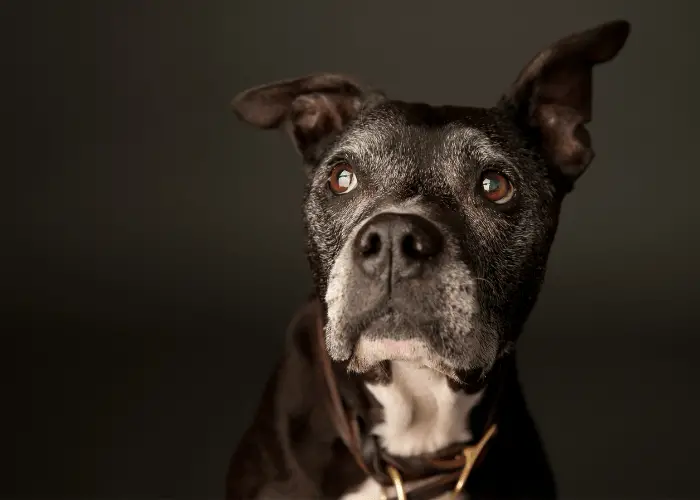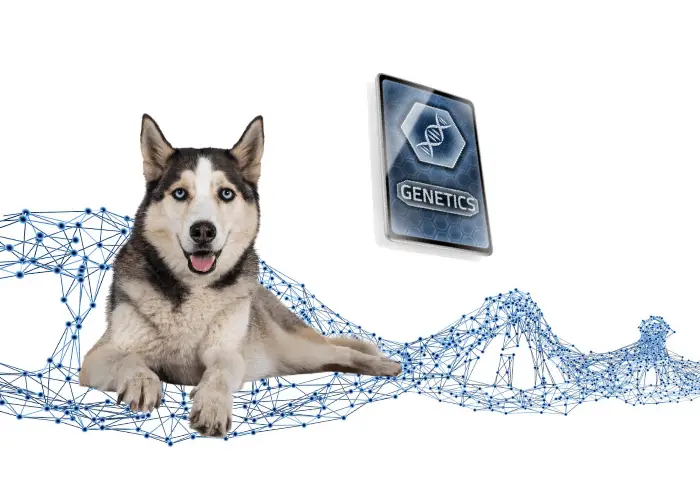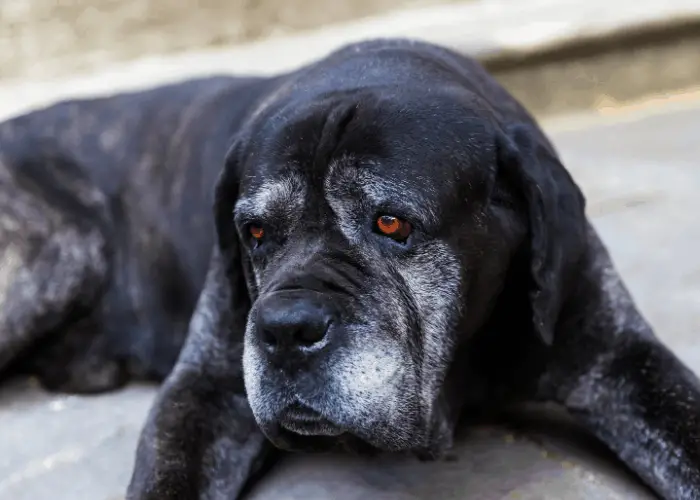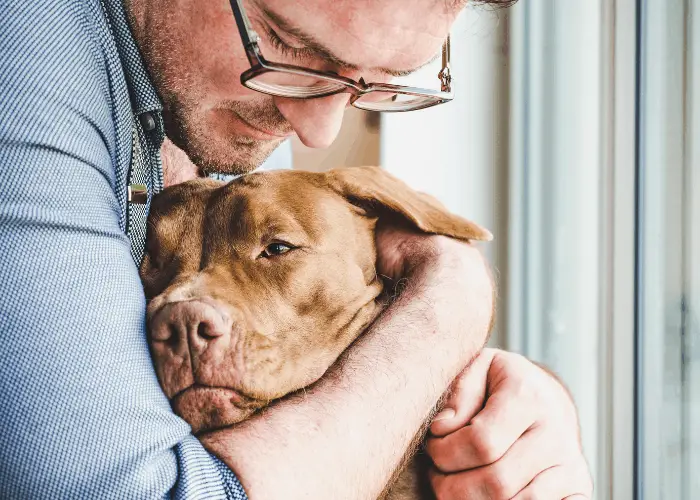There is one fact that all pet owners must face- A pet is guaranteed heartbreak even if all goes well. This is particularly true with dogs, as they age much faster than we do.
Dogs age faster than humans because they have different genetic makeup and metabolism. As a general rule, dog ages 15 human years in year one, 9 years in year two, and 5 years thereafter. Larger dogs generally live much shorter lives and age more quickly than smaller breeds.
The first year of a dog’s life is the equivalent of fifteen of ours, with the second year equaling about eight human years.
After the fifth year of a dog’s life, the breed’s size comes into play. For a great chart and short article about dog age calculators, check out this page from Fetch by WebMD.
Why Do Dogs Age Faster Than We Do?

Because the metabolism of a dog works at a much faster rate than we humans, their bodies succumb to wear and tear much faster than we do. This makes the natural process of aging work at a different pace than what we use for ourselves in terms of years.
As a rule, the bigger the breed, the shorter the lifespan it has. But the breed type is also a factor when formulating a rough estimation of how long a pup will live if it remains healthy.
However, it’s important to note that some dogs outlive their estimated “end of the line,” so to speak. Just as we have people who make it into their 100s, some dogs can live far beyond what is typical for their breed.
According to the Guinness Book of world records, the official holder of the world’s oldest dog is held by an Australian Cattle Dog named Bluey, who died in 1939, aged 29.
Genetics Set The Tone

Genetics doesn’t only determine how healthy a dog will be as it enters into its final years of life but also sets the hourglass as to how long the breed or individual will live. This is one reason why breeders try desperately to breed healthy dogs with good genetics.
A dog with inherently bad genetics is prone to a greater palette of health issues. Many of which can mean the premature end of a dog’s life or a miserable time navigating through its latter years.
All canine breeds have genetic health concerns- some worse off than others. But a healthy breeding program can eliminate a host of genetic problems and narrow the chances of a dog falling ill to any ailments inherent to the breed.
The better the genetics, the healthier the dog will be throughout its life (pending on its living conditions, diet, exercise, etc.).
It will be more likely to dodge any genetic bullets that might be common to the breed, enabling the dog to enter its twilight years healthier, thus living to its fullest- right up to the end.
As stated several times throughout this site, knowing as much as possible about a breeder you are interested in dealing with when searching for a pup is imperative. A reputable breeder will also have information about the pup’s parents and lineage.
Why Do Dogs Have A Short Life?

It might seem like dogs have a short life, especially as we watch our four-legged loved ones reach a ripe old age. But they don’t have a short life at all. It may seem that way to us, but that’s because humans grow old slowly or we live for a very long time compared to most species on earth.
Only a handful of animals we share our existence with outliving humans. We’ll never have any close or long-term contact with most of them as we would with cats and dogs. In fact, most of them are aquatic animals.
So, the question above is a product of perception. A few breeds of tortoise can ask the same question about humans, “Why do humans have a short life?”
(There are reports that the animal that ages the slowest is a giant tortoise living on the island of Saint Helena and is reported to be about 190 years old.)
They can ask that due to their longer lifespan compared to our own. (Yes, I know. Turtles can’t ask questions- but I think you get my point.)
It’s not that dogs live short life, but that humans live very long ones.
Diet Makes A Difference

As dog’s age, their dietary needs can change. How these changes are addressed can directly impact the longevity of the dog’s life.
Deficiencies that might not have impacted your youthful dog may take their toll as the dog grows old. Regarding nutrition, dogs share many of the same problems humans have when not eating right.
Heart problems, obesity, respiratory problems, vitamin deficiency, and all of the effects of decreased immune systems can all be directly influenced by diet. These are just a few problems that an aging dog with a poor diet can face.
There’s a good chance that a dietary switch-up will be necessary throughout any dog’s life.
As your dog ages, the best thing to do is check in with the vet and seek advice that will suit your dog’s individual needs. After all, there is no cookie-cutter approach to an aging dog’s health, just as there isn’t one with humans.
Final Thoughts

For most dog owners, their dog is a part of the family, even loved as a child to some. Nobody likes to face what’s coming as their dog advances in age.
It’s a tough reality that comes with the ownership of any dog. When all goes well, and our dogs’ lives are healthy and happy, we will watch them go through their elderly stages of life unto the end.
Through this period of their lives, we can take the position of doing what we can to allow them to make the most of their time.
Try to make things as easy as possible for them, give them all of the necessary nutritional needs, and reflect on the unconditional love they so willingly shared with us throughout their lifetime.
READ MORE INTERESTING TOPICS: Pros and Cons of dog co-ownership

